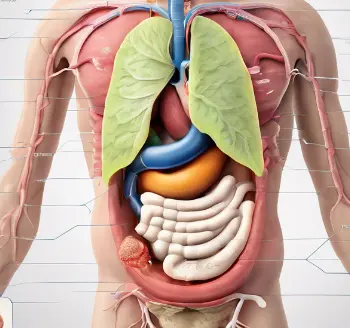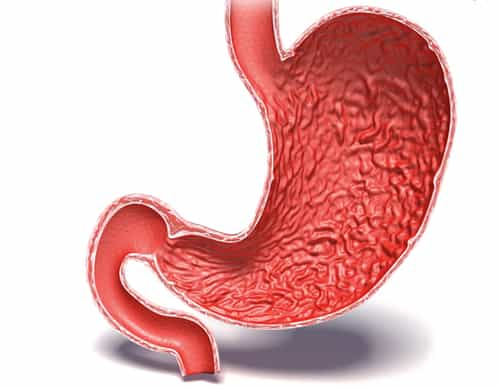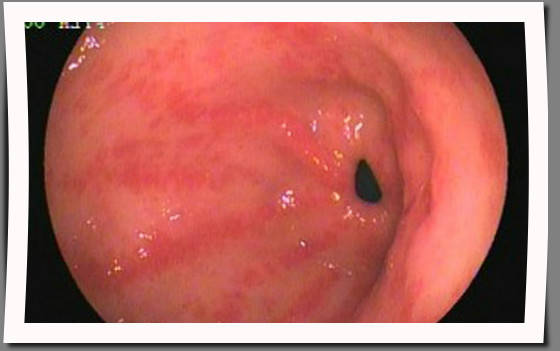Zollinger-Ellison syndrome, named after the physicians who first described it, is a rare disorder that affects the digestive system.
This syndrome involves the presence of a tumor, called a gastrinoma, which forms in the pancreas or the upper part of the small intestine, known as the duodenum. These tumors cause the excessive production of a hormone called gastrin, which stimulates the stomach to produce excessive amounts of acid.
Symptoms
People with Zollinger-Ellison syndrome may experience a range of symptoms related to the excessive production of acid in the stomach. These can include:
- Abdominal pain: Persistent and severe abdominal pain is a common symptom of Zollinger-Ellison syndrome. The pain is usually located in the upper abdomen and can be described as a burning or gnawing sensation.
- Diarrhea: Frequent episodes of diarrhea may occur due to the increased acid production. The diarrhea may be watery and occur multiple times a day.
- Acid reflux: Individuals with Zollinger-Ellison syndrome often experience symptoms of acid reflux, such as heartburn, regurgitation of acid into the throat, and a sour taste in the mouth.
- Ulcers: The excessive acid leads to the formation of painful ulcers in the stomach and duodenum. These ulcers can cause bleeding, leading to symptoms like black, tarry stools and vomiting blood.
- Weight loss: Chronic diarrhea and poor nutrient absorption can result in unintentional weight loss.
It is important to note that not all individuals with Zollinger-Ellison syndrome will experience all of these symptoms. Some people may only have mild symptoms, while others may experience more severe manifestations. A proper medical evaluation is crucial for an accurate diagnosis and appropriate management of symptoms.
Causes
Zollinger-Ellison syndrome is primarily caused by the presence of gastrinomas, which are usually non-cancerous tumors that develop in the pancreas or duodenum. These tumors secrete excessive amounts of gastrin, a hormone that stimulates the production of gastric acid in the stomach.
The exact cause of gastrinomas is not fully understood, but they are thought to occur due to certain genetic mutations. In some cases, Zollinger-Ellison syndrome can occur as part of a genetic condition called multiple endocrine neoplasia type 1 (MEN1).
Other possible causes include certain medications, such as proton pump inhibitors, which can lead to an increase in gastrin production. However, these cases are rare and usually reversible once the medication is stopped.
It is important to note that Zollinger-Ellison syndrome is a rare condition, and most cases are sporadic rather than hereditary. Working closely with healthcare professionals can help determine the underlying cause and appropriate management for individuals with this syndrome.
Risk Factors and Dangers
Risk factors for Zollinger-Ellison syndrome include having a family history of the condition, as it can sometimes be inherited as part of the MEN1 genetic syndrome. In most cases, however, the syndrome occurs sporadically with no known cause.
The primary danger of Zollinger-Ellison syndrome is the excessive production of gastric acid, which can lead to complications such as peptic ulcers, gastrointestinal bleeding, and perforation of the stomach or intestines. These complications can cause severe pain, digestive problems, and in some cases, life-threatening conditions.
If left untreated, Zollinger-Ellison syndrome can also increase the risk of developing pancreatic cancer. Therefore, early diagnosis and proper management are crucial to prevent further complications and ensure a better prognosis.
Regular monitoring and follow-up with healthcare professionals are necessary to detect any potential complications and adjust treatment accordingly. Patients with this syndrome should also be cautious about managing their diet and stress levels to help minimize symptoms and reduce the risk of complications.
Diagnosis
Diagnosis of Zollinger-Ellison syndrome involves a combination of medical history, physical examination, laboratory tests, and imaging studies.
The healthcare provider will inquire about the patient’s symptoms, family history, and perform a thorough physical examination. Blood tests may be conducted to measure the levels of gastrin, a digestive hormone that is elevated in individuals with this syndrome.
Other tests, such as fasting gastrin levels, secretin stimulation test, and gastric acid secretion test, may also be performed to confirm the diagnosis.
Imaging studies, such as an endoscopy or abdominal CT scan, can help identify any tumors in the pancreas or other areas of the digestive tract.
Obtaining a tissue sample (biopsy) from any suspected tumors is also important for definitive diagnosis. A multidisciplinary approach involving gastroenterologists, endocrinologists, and radiologists is often necessary to make an accurate diagnosis.
Treatment Options
Treatment options for Zollinger-Ellison syndrome aim to control the excessive production of gastric acid and manage its associated symptoms.
The primary approach is through the use of medications called proton pump inhibitors (PPIs) that block acid production in the stomach. PPIs, such as omeprazole and pantoprazole, are highly effective in controlling acid hypersecretion and providing relief from symptoms.
In severe cases or when medications fail to provide adequate control, surgical intervention may be considered. Surgery involves removing the tumor or tumors responsible for the excess gastrin production. This can often provide long-term relief and improve the patient’s quality of life.
Additionally, regular monitoring and follow-up visits are essential to assess the effectiveness of treatment, manage symptoms, and address any potential complications. Adopting lifestyle modifications, such as avoiding alcohol, caffeine, and spicy foods, and quitting smoking, can also help in managing symptoms and maintaining overall health.
Prevention
Prevention of Zollinger-Ellison syndrome primarily involves minimizing the risk factors associated with the condition.
Since most cases of Zollinger-Ellison syndrome result from the formation of tumors in the pancreas or duodenum, it is difficult to prevent the syndrome itself. However, individuals with a family history of multiple endocrine neoplasia type 1 (MEN1) should consider genetic testing and regular screening to detect any tumors early on.
Making certain lifestyle choices may also help reduce the chances of developing complications associated with Zollinger-Ellison syndrome. These include avoiding excessive alcohol consumption, quitting smoking, and following a healthy diet that avoids spicy and high-fat foods.
Additionally, maintaining a healthy weight and managing stress levels could potentially lower the risk of complications related to excessive gastric acid production.
Regular check-ups and monitoring are crucial for individuals with a history of Zollinger-Ellison syndrome to detect any recurrent tumors or complications at an early stage.
Prognosis
The prognosis for Zollinger-Ellison syndrome can vary depending on the severity of the condition and the presence of complications. With proper diagnosis and treatment, most individuals with Zollinger-Ellison syndrome can have a good prognosis and manage their symptoms effectively.
However, if left untreated or if complications arise, the prognosis may be less favorable.
Complications such as peptic ulcers, gastrointestinal bleeding, and tumor metastasis can significantly impact the prognosis. Regular monitoring and follow-up appointments are essential to detect any recurrent tumors or complications early on.
Additionally, individuals with Zollinger-Ellison syndrome should closely adhere to their treatment plan, including medication regimens and dietary restrictions, to optimize their prognosis and maintain a good quality of life.
Overall, with proper management and ongoing medical care, individuals with Zollinger-Ellison syndrome can lead fulfilling lives.









